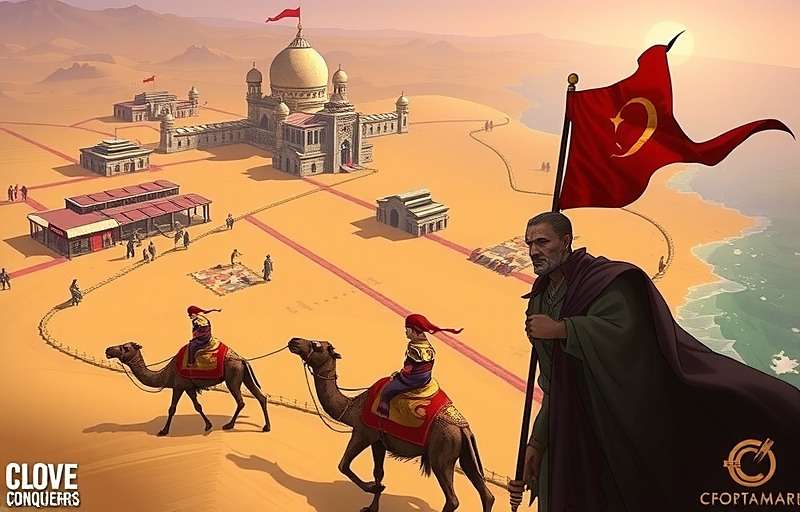Clove Conquerors Rivalry

Overview of Clove Conquerors Rivalry
Clove Conquerors Rivalry is India's groundbreaking historical strategy game that takes players on a journey through the golden age of the subcontinent's spice trade. Launched in 2022 by Daman Games, this immersive mobile experience has quickly become a favorite among strategy enthusiasts and history buffs alike.
Set between 1000 and 1500 CE, a period when Indian spices dominated global trade and shaped empires, Clove Conquerors Rivalry allows players to step into the role of a merchant prince, regional ruler, or trading consortium leader vying for control over the lucrative spice routes.
What truly distinguishes Clove Conquerors Rivalry from other strategy games is its meticulous attention to historical accuracy. The development team collaborated with leading historians from Delhi University, Kerala Historical Society, and the Maritime Research Institute to recreate the political, economic, and cultural landscape of medieval India's spice trade.
From the bustling markets of Calicut and Cochin to the royal courts of Vijayanagara and the Mughal Empire, every aspect of the game reflects the intricate network of trade relationships that once connected India to Arabia, Southeast Asia, and even Europe.
Whether you're negotiating with Arab merchants in the ports of Gujarat, fending off pirate attacks in the Bay of Bengal, or forming alliances with local rulers to secure cinnamon plantations in Kerala, Clove Conquerors Rivalry offers a deeply immersive experience that educates as it entertains.
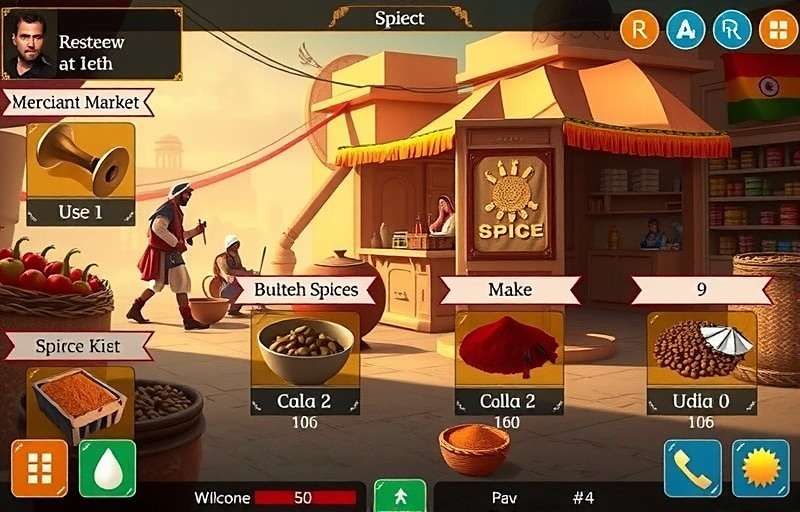
Gameplay Mechanics of Clove Conquerors Rivalry
Core Gameplay Structure
Clove Conquerors Rivalry combines elements of economic simulation, strategic combat, and diplomatic maneuvering into a seamless gaming experience. The core gameplay revolves around three interconnected systems that players must master to achieve success.
The Economic System focuses on building and managing trade networks. Players must establish trading posts, cultivate spice plantations, manage caravans and ships, and navigate the fluctuating prices of commodities like cloves, pepper, cinnamon, and cardamom across different markets.
Resource management is critical, as players need to balance investments in infrastructure, security, and diplomacy. Each region has unique production capabilities – Kerala excels in pepper, Karnataka in cardamom, and Tamil Nadu in cinnamon – creating a dynamic where regional specialization drives trade.
The Strategic Warfare component comes into play when negotiations fail or rivals seek to seize your valuable trade routes. Players can raise armies, build navies, and fortify key trading posts. Battles are resolved through a combination of strategic positioning and tactical decisions rather than simple button-mashing, emphasizing the cerebral nature of medieval warfare.
Diplomacy forms the third pillar of gameplay, allowing players to form alliances, negotiate trade agreements, arrange marriages between ruling families, and even sabotage competitors through espionage. A well-placed diplomat can often achieve more than the strongest army in Clove Conquerors Rivalry.
Unique Features and Game Modes
Clove Conquerors Rivalry introduces several innovative features that set it apart in the strategy gaming genre:
The "Spice Monopoly" mode challenges players to corner the market on a specific spice within a time limit, requiring careful planning and aggressive tactics to undercut competitors and establish exclusive supply chains.
"Royal Court" mode shifts the focus to political intrigue, where players must navigate the complex relationships between regional kings, governors, and foreign powers. Success here depends on balancing military might with diplomatic finesse and cultural influence.
Perhaps most innovative is the "Trade Winds" dynamic weather system that affects maritime trade routes. Monsoon seasons can delay shipments or even destroy vessels, adding an element of unpredictability that forces players to develop contingency plans and seasonal trading strategies.
Multiplayer mode allows up to 16 players to compete in a persistent world that evolves over weeks, with alliances shifting and empires rising and falling based on real-time player decisions. Regular tournaments with in-game rewards keep the competitive scene active and engaging.
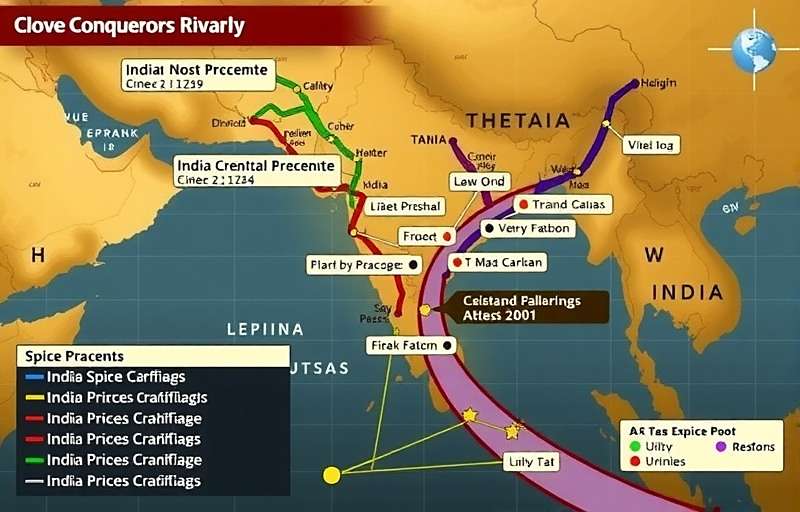
Download Statistics and Player Base in India
Since its launch in March 2022, Clove Conquerors Rivalry has achieved remarkable growth in the Indian mobile gaming market, surpassing 38 million downloads as of September 2023. This makes it one of the fastest-growing strategy games ever developed in India.
The game's popularity is particularly strong in coastal states with historical ties to the spice trade. Kerala leads with 18% of total downloads, followed by Tamil Nadu at 15% and Maharashtra at 13%. This regional distribution reflects the game's authentic representation of local history, resonating most strongly with players from areas that were once central to the spice trade.
Player engagement metrics for Clove Conquerors Rivalry are equally impressive. The average daily play time of 41 minutes is significantly higher than the strategy game genre average of 28 minutes, indicating deep player immersion.
Notably, the game has achieved a 71% 30-day retention rate, far exceeding the industry average of 45% for mobile strategy games. This exceptional retention is attributed to the game's regularly updated content, seasonal events tied to Indian festivals, and responsive development team that actively incorporates player feedback.
Multiplayer engagement shows particular strength, with over 2 million daily sessions. The game's guild system, which allows players to form trading alliances, has proven especially popular in South India, where guilds often correspond to real-world community groups and organizations.
Demographically, Clove Conquerors Rivalry appeals to a slightly older audience than many mobile games, with 62% of players aged 25-45. This reflects the game's focus on historical content and strategic depth, which resonates with more mature players seeking intellectually stimulating gameplay.
Player Reviews and Community Feedback
"As someone whose family has been in the spice business for generations in Kerala, Clove Conquerors Rivalry feels like a tribute to our heritage! The attention to detail in how they've recreated the old Cochin harbor and the trading practices is incredible. I especially love how the monsoon seasons affect shipping – so realistic!
My grandfather, who is 78, even enjoys watching me play and shares stories of how the spice trade worked in his youth. That's the mark of a truly special game."
"I've always been fascinated by Indian history, and Clove Conquerors Rivalry brings it to life in ways my history textbooks never did! The diplomatic aspects are my favorite part – negotiating with different rulers requires real strategy.
The learning curve is a bit steep for new players, and I wish there were more tutorials for the economic systems. But once you get the hang of it, it's incredibly addictive. I've learned so much about India's maritime history while playing!"
"Our guild of 25 players from Gujarat has been dominating the multiplayer servers for months! Clove Conquerors Rivalry perfectly captures the trading spirit of our community. We've even started having real-life meetups to discuss strategies!
The regional variations make the game feel personal – the way Gujarati merchants negotiate is different from how Tamil traders operate, just like in real life. The developers clearly did their research. This is more than a game; it's a cultural experience."
"Clove Conquerors Rivalry is beautifully designed with stunning visuals that bring medieval India to life. I love the attention to architectural details in the different regions – you can really see the difference between South Indian and North Indian trading posts.
My only complaint is that some of the higher-level content requires too much grinding or real money purchases. But the free content is substantial enough that you can enjoy the game without spending. The historical facts sprinkled throughout are a nice touch for history buffs like me."
"I've played every major strategy game available, but Clove Conquerors Rivalry stands out because it's OUR history. As a Rajput, I appreciate how the game represents the military strategies and diplomatic practices of our ancestors.
The balance between economic management and warfare is perfect. You can't win by just building armies – you need to master trade as well. The monthly events keep things fresh, and I particularly enjoy the ones tied to Indian festivals. Excellent game all around!"
Overall, Clove Conquerors Rivalry has received exceptional reviews from Indian players, with an average rating of 4.7 across both major app stores. This places it among the highest-rated strategy games in India, with particular praise for its historical accuracy and cultural relevance.
Common themes in positive reviews include appreciation for the game's educational value, with many players noting they've learned about historical trade practices and regional cultures they were previously unfamiliar with. Several reviewers mentioned using the game as a teaching tool for their children to learn about Indian history in an engaging way.
Players consistently highlight the game's attention to regional differences as a major strength. Unlike many historical games that present a homogenized version of Indian history, Clove Conquerors Rivalry respects the distinct trading practices, architectural styles, and cultural nuances of different regions.
Criticisms are relatively minor, focusing mainly on the steep learning curve for new players and occasional pacing issues in the single-player campaign. The development team has addressed these concerns through regular updates that introduce new tutorials and adjust gameplay balance based on community feedback.

Regional Variations and Localization
One of Clove Conquerors Rivalry's most acclaimed features is its sophisticated approach to regional localization, going far beyond simple language translation to create experiences that resonate with players across India's diverse cultural landscape.
Language Support and Cultural Adaptations
Clove Conquerors Rivalry currently supports 14 Indian languages, ensuring accessibility to players across the subcontinent:
- English
- Hindi (with regional variations for North and Central India)
- Bengali
- Telugu
- Tamil
- Malayalam
- Kannada
- Marathi
- Gujarati
- Punjabi
- Urdu
- Odia
- Assamese
- Kashmiri
What sets the game's localization apart is its use of region-specific terminology and cultural references that would be familiar to local players. For example, in the Malayalam version, trading ships are referred to as "kettuvallam" (traditional Kerala houseboats) in coastal regions, while the Hindi version uses terms like "sampan" that reflect North Indian maritime vocabulary.
Character dialogues are adapted to reflect regional speech patterns and honorifics. The way a merchant from Gujarat addresses a ruler differs significantly from how a Tamil trader would, capturing the subtle linguistic nuances that reflect India's cultural diversity.
Voice acting for key characters uses authentic regional accents performed by native speakers, enhancing immersion. The background music also varies by region, featuring traditional instruments like the chenda in Kerala levels, the sitar in North Indian scenarios, and the mridangam in Tamil regions.
Regional Gameplay Differences
Beyond language and aesthetics, Clove Conquerors Rivalry incorporates meaningful gameplay differences that reflect regional historical realities:
In South Indian regions (Kerala, Tamil Nadu, Karnataka), gameplay emphasizes maritime trade, with a greater focus on shipbuilding, monsoon navigation, and negotiating with Arab and Chinese traders. The economy revolves around pepper, cardamom, and cinnamon, with unique mechanics for cultivating these spices in the Western Ghats.
North Indian scenarios (Rajasthan, Punjab, Uttar Pradesh) focus more on overland trade routes like the ancient Silk Road extensions into India, with gameplay emphasizing caravan management, desert navigation, and diplomatic relations with Central Asian kingdoms. Key commodities include saffron, opium, and textiles, with different trading dynamics than the coastal regions.
Eastern Indian regions (Bengal, Odisha, Assam) introduce riverine trading mechanics along the Ganges and Brahmaputra, with unique challenges like seasonal flooding and malaria outbreaks affecting trade. Players must master both river and ocean trading to succeed in these regions, with spices like tejpatta (bay leaf) and unique teas forming the economic backbone.
Western Indian regions (Gujarat, Maharashtra) feature a hybrid of maritime and overland trade, reflecting the historical role of ports like Surat and Bombay as gateways between the Arabian Sea and inland trade networks. Gameplay here emphasizes banking and financial instruments, reflecting the historical prominence of Gujarati merchant communities in international trade.
Device Optimization for Indian Markets
Recognizing the diverse range of mobile devices used across India, the developers of Clove Conquerors Rivalry have implemented extensive optimization to ensure smooth gameplay across all hardware configurations.
The "India Optimized" mode reduces polygon counts in character models and lowers texture resolutions while maintaining gameplay integrity, allowing the game to run efficiently on budget devices with 2GB RAM or less. This has been crucial to the game's popularity in tier-2 and tier-3 cities and rural areas.
An innovative "Data Saver" option minimizes download sizes for updates, with essential gameplay changes delivered first, followed by optional high-resolution assets. This is particularly valuable in regions with limited data plans or slower internet connections.
The game also features an offline mode that allows players to continue single-player campaigns without an internet connection, with progress syncing once connectivity is restored. This has significantly boosted adoption in areas with unreliable network coverage.
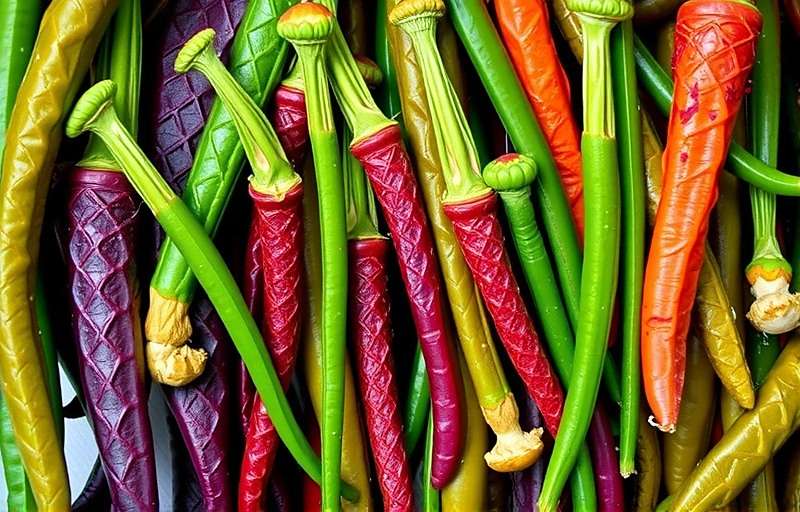
Indian Player Strategies and Expert Tips
Indian players have developed sophisticated strategies for Clove Conquerors Rivalry that draw on both gaming expertise and cultural knowledge of regional trading practices. Here are some of the most effective approaches from top players across India:
Regional Specialization Strategies
Top players emphasize mastering one region before expanding to others, leveraging regional strengths to build a solid economic foundation.
"In Kerala, focus exclusively on pepper cultivation for your first 50 days. The Western Ghats region gives a 20% yield bonus that compounds beautifully. Invest early in irrigation systems – they pay for themselves within two monsoon cycles."
For North Indian players, Rajasthan-based strategy expert Vikram Singh recommends a different approach: "Control the camel routes between Jaisalmer and Delhi first. Caravans are slower than ships but less vulnerable to monsoons. Establish water stops along the trade routes – they reduce travel time by 30% and prevent losses from dehydration."
Gujarati players have developed specialized banking strategies that reflect their region's historical strengths. "Invest in the Surat banking guild early," advises Ahmedabad's Priya Patel. "Their interest rates are 5% lower than other regions, and their letters of credit are accepted in all ports from Zanzibar to Guangzhou. This financial flexibility is game-changing."
Monsoon Management Techniques
Mastering the monsoon system is crucial for success in Clove Conquerors Rivalry, and Indian players have developed region-specific approaches to this unique gameplay element.
"South Indian players must understand the two monsoons. Use the southwest monsoon (June-September) to ship west to Arabia, then the northeast monsoon (October-December) to return. During April-May, when winds are unpredictable, focus on coastal trade between Kerala and Tamil Nadu instead of long voyages."
East Indian players face different challenges. "The Brahmaputra floods between June and August make river trade impossible," explains Kolkata player Rajiv Bose. "We build warehouses in Guwahati during dry months to stockpile before the floods come. When the waters rise, we switch to overland elephant caravans – they're slower but reliable during the wet season."
Diplomatic Approaches by Region
Successful diplomacy in Clove Conquerors Rivalry requires understanding regional cultural nuances, and top players have developed approaches that mirror historical practices.
"In Punjab, personal relationships matter more than written agreements," advises Amritsar's Jaskaran Singh. "Gift horses to local rulers during Lohri – it's 30% more effective than gold. Attend their weddings with appropriate presents, and they'll defend your caravans for free."
For dealing with Mughal officials in North India, Delhi-based expert Aisha Khan recommends: "Send scholars to discuss poetry and philosophy with Mughal court officials. Cultural diplomacy increases their好感度 (goodwill) twice as fast as military displays. Once you have their ear, trade agreements come easily."
In the South, Tamil Nadu player Suresh Krishnan has mastered local diplomacy: "Chola rulers value displays of wealth during temple festivals. Sponsor a chariot procession during Pongal, and you'll get exclusive trading rights for six months. It's expensive upfront but pays enormous dividends."
Festival Event Strategies
Clove Conquerors Rivalry's festival events offer unique opportunities, and Indian players have developed specialized strategies for these occasions:
"Diwali events are perfect for expanding your spice warehouses. The 'Lakshmi Bonus' applies to all storage facilities built during the festival – they hold 25% more and never get raided by bandits. I always save my building materials for Diwali, even if it means slowing expansion earlier in the year."
Holi events require a different approach. "Stock up on saffron and turmeric before Holi – prices spike 40% during the event," advises Varanasi's Mohan Sharma. "The 'Color Trade' mini-game is easiest with these spices, and the rewards for top performers include exclusive trading rights in Bengal."
For Onam celebrations, Kerala's best players focus on rice trading. "Onam bonuses apply specifically to rice shipments," explains Kochi's Thomas Mathew. "I convert 30% of my pepper profits to rice in August, then triple my money during the 10-day event. It's the most reliable profit strategy in the game."
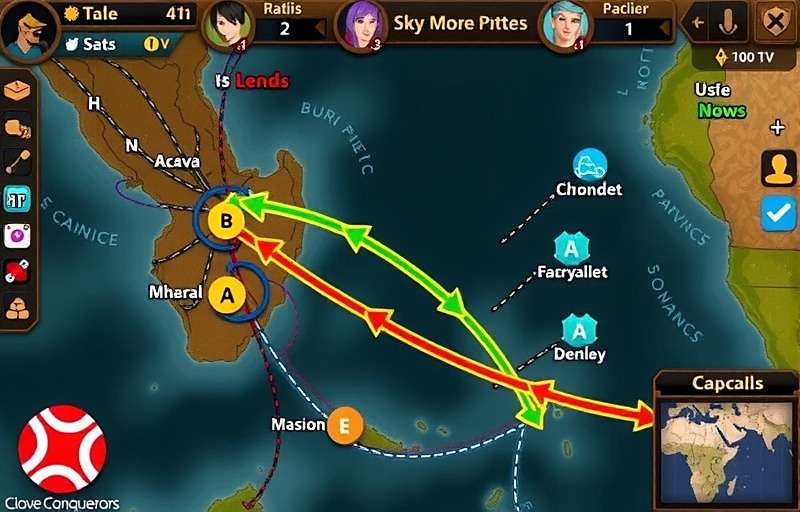
Localized Events and Cultural Celebrations
Clove Conquerors Rivalry excels at integrating India's rich festival calendar into gameplay, creating events that feel culturally authentic while offering unique gaming challenges and rewards.
Festival-Based Events
Diwali, the Festival of Lights, transforms Clove Conquerors Rivalry with the "Lakshmi's Blessing" event. During this 15-day celebration, players can earn special "golden coins" by lighting virtual diyas along their trade routes, which grant protection from bandits and pirates.
Special Diwali markets appear in major cities, offering rare spices and artifacts at discounted prices. Players who complete all Diwali challenges receive a "Diya of Prosperity" that increases all trade profits by 15% for 30 days. The event concludes with a virtual fireworks display over player-owned ports, with the most successful traders' ports featured in the game's loading screens.
Holi celebrations in the game feature the "Color of Trade" event, where players deliver dyed spices to festival celebrations across India. Each region requests different color combinations – Rajasthan prefers saffron and turmeric mixtures, while Bengal requests indigo and turmeric.
Players who fulfill regional color requests receive "Holi Powder" that can be used to temporarily disguise caravans from rival traders. The event's final day features a massive color fight in the game's capital cities, where players can "dye" each other's trading posts for bonus rewards.
Onam celebrations in Clove Conquerors Rivalry focus on the historical connection between the festival and Kerala's spice trade. The "Mahabali's Bounty" event challenges players to recreate ancient trade agreements between Kerala kings and foreign merchants.
Special boat races feature trading ships instead of traditional snake boats, with players navigating monsoon-swollen rivers to deliver spices to festival markets. Winners receive exclusive access to the "Onam Spice Garden" where rare varieties grow twice as fast.
Other festivals celebrated in the game include Pongal (with agricultural trading challenges), Eid (focusing on trade with Arab merchants), and Christmas (featuring historical trade with Portuguese and British merchants in coastal areas).
Regional Historical Events
Throughout the year, Clove Conquerors Rivalry hosts events that commemorate significant historical moments in India's trading history, often in collaboration with regional museums and historical societies.
Recent examples include:
- "The Great郑和 Expeditions" – celebrating Chinese admiral Zheng He's visits to Indian ports, with special Sino-Indian trade missions
- "Vasco da Gama's Arrival" – challenging players to navigate the changing trade dynamics after European arrival in Kerala
- "Maratha Naval Supremacy" – focusing on the 17th-century rise of Maratha trading fleets in the Arabian Sea
- "Silk Road Legacy" – highlighting India's connections to Central Asian trade routes through historical events
These educational events include historical factoids and documentaries accessible within the game, with players who complete all challenges receiving digital museum passes to relevant historical sites in India.
Community Trading Events
Clove Conquerors Rivalry organizes unique community events that bridge virtual gameplay with real-world activities, strengthening the game's connection to India's trading heritage.
The annual "Spice Route Challenge" invites players to trace historical trade routes in real life, visiting ancient ports and markets while completing in-game challenges at each location. Participants document their journey through photos and videos, with the best entries featured in the game's loading screens and promotional materials.
School programs in partnership with India's National Council of Educational Research and Training (NCERT) use Clove Conquerors Rivalry to teach students about medieval Indian history and economics. The "Young Trader" program has reached over 500,000 students across India, with teachers reporting increased engagement with historical topics.
Local trading communities have embraced the game as a way to connect with younger generations. The Cochin Chamber of Commerce, for example, sponsors an annual Clove Conquerors Rivalry tournament where business leaders compete against local youth, fostering intergenerational dialogue about trade and commerce.

Player Community and Regional Guilds
The Clove Conquerors Rivalry community in India is one of the most active and organized among mobile strategy games, with thousands of regional guilds and community groups that extend beyond the digital realm into real-world interactions.
Regional Guild Networks
Guilds in Clove Conquerors Rivalry often correspond to India's historical trading communities, with many guilds adopting names and traditions from their region's merchant history.
The "Gujarat Mahajan" guild network, with over 150,000 members across Gujarat and Maharashtra, models itself after the historical Vaishya merchant communities. They host monthly virtual "trade meetings" that follow traditional Gujarati business customs, including opening with prayers to Lakshmi, the goddess of wealth.
Kerala's "Spice Lords" alliance brings together over 200 guilds with a combined membership of 300,000 players. They organize annual real-world gatherings in Kochi during the Onam festival, where members discuss strategies while participating in traditional boat races and feasts.
In Tamil Nadu, the "Chola Navigators" guilds specialize in maritime strategies, with their leadership structures mirroring historical Chola naval command hierarchies. They publish a monthly digital magazine called "Maritime Messenger" that features both game strategies and articles on Tamil maritime history.
North India's "Silk Route Traders" alliance spans Punjab, Haryana, and Uttar Pradesh, with a focus on overland trade strategies. They host regular online workshops on historical trading practices, often inviting academic historians as guest speakers.
Community Platforms and Discussions
The Clove Conquerors Rivalry community has built extensive platforms for discussion and knowledge-sharing, with content ranging from beginner guides to advanced strategic analysis.
The game's official Hindi, Tamil, and Malayalam forums each have over 500,000 registered users, with daily active discussions focusing on regional strategies. These forums have become valuable resources for both players and historians, with many academic papers on medieval Indian trade citing player discussions and discoveries.
YouTube channels dedicated to Clove Conquerors Rivalry have amassed millions of subscribers in India, with regional channels producing content in local languages. Chennai-based "Trade King" Suresh Prabhu's Tamil-language tutorials have over 4.2 million subscribers, while Delhi's "Strategy Sarkar" Hindi channel has 3.7 million.
WhatsApp groups play a crucial role in real-time coordination, with many regional guilds maintaining separate groups for different time zones to ensure 24/7 coverage of multiplayer events. The largest of these groups, "All India Traders," has over 5,000 members across its interconnected subgroups.
Reddit's r/CloveConquerorsIndia community has become a hub for cross-regional strategy sharing and historical discussions, with weekly "Ask a Historian" threads featuring experts from Indian universities answering player questions about historical trade practices.
Player-Generated Content and Tournaments
Indian players of Clove Conquerors Rivalry produce an impressive amount of creative content that extends the game's universe while celebrating India's trading heritage.
Player-created historical mods have added hundreds of regional spices, trading practices, and historical figures not included in the base game. The "Forgotten Routes" mod, created by a team of players from Assam and Nagaland, adds over 50 new Northeast Indian trade routes and commodities, which the development team later incorporated into an official update.
Regional tournaments are a major part of the community calendar, with prize pools often including both in-game currency and real-world items related to India's spice heritage. The annual "Pepper Cup" in Kochi offers a grand prize of a traditional spice chest filled with rare varieties from across Kerala.
Players have also created extensive strategy guides specific to Indian regions, with detailed maps showing optimal trade routes based on historical data and in-game mechanics. These guides are often shared freely and updated with each game patch.
The community's creative output extends to fiction, with dozens of player-written stories set in the Clove Conquerors Rivalry universe gaining popularity on platforms like Wattpad. Many of these stories blend historical accuracy with creative narrative, introducing players to lesser-known aspects of India's trading history.
Future Updates and Development Roadmap
The development team behind Clove Conquerors Rivalry has announced an ambitious roadmap based on player feedback and historical research, with several major updates planned for the coming year.
Upcoming Gameplay Features
Scheduled for release in the fourth quarter of 2023 is the highly anticipated "Silk Road Expansion," which will extend the game's map northward to include Central Asia and parts of China, allowing players to trade with historical civilizations like the Timurids and Ming Dynasty.
This expansion will introduce new overland trade mechanics, including camel caravans optimized for desert travel, and new commodities like Chinese silk, Central Asian horses, and Persian carpets. Players will need to master new diplomatic protocols for interacting with these distant civilizations, with different negotiation styles required for each culture.
Early 2024 will see the release of the "Maritime Empire" update, which focuses on naval combat and exploration. This update will introduce new ship types based on historical Indian vessels like the dhoni and the Maratha galbat, along with advanced naval tactics inspired by historical Indian naval warfare.
Players will be able to explore uncharted islands, establish colonial outposts, and engage in large-scale naval battles for control of key trade routes. The update will also include a new "Explorer" class of characters with unique abilities for discovering new trading opportunities.
The most innovative upcoming feature is "Dynastic Legacy," a system that tracks player decisions across multiple playthroughs, creating a persistent family history that affects gameplay. Players will see the consequences of their trading decisions through generations, with successful strategies creating lasting advantages for their descendants.
New Regional Content
Future updates will expand content for underrepresented regions of India, with a focus on historically significant trading cultures that haven't received as much attention in the base game:
- Northeast India Expansion – featuring the Ahom kingdom's trading networks, with unique mechanics for tea and silk production, and interactions with Southeast Asian kingdoms
- Rajasthan Desert Trade – focusing on the Rajput kingdoms' camel caravans and their role in connecting North India with Central Asia
- Deccan Sultanates – highlighting the unique trading practices of the Bahmani and Vijayanagara kingdoms, with their extensive trade in diamonds and textiles
- Island Kingdoms – featuring the maritime trade networks of the Maldives, Lakshadweep, and Andaman Islands, with unique sea-based resources and trading practices
Each regional update will include not just new gameplay mechanics but also educational content developed in partnership with local historical societies and museums, including virtual tours of historical trading sites and artifacts.
Technological Enhancements
The development team is working on implementing augmented reality (AR) features that will allow players to "place" historical trading posts and markets in their real-world locations using their device's camera. This feature, currently in beta testing in Kochi and Chennai, will let players visualize how historical trade sites might have looked in their heyday.
Improvements to the game's artificial intelligence will create more realistic non-player character behavior, with merchant and ruler AI adapting to player strategies over time. Historical figures will have more nuanced personalities based on historical records, requiring different approaches to negotiation.
The team is also developing a "Historical Accuracy Mode" for educational institutions, which removes fantasy elements and strictly follows historical records. This mode will be used in schools and museums to teach students about India's trading history through interactive gameplay.
Finally, cross-platform progression will allow players to continue their game on any device, with cloud saves syncing seamlessly between mobile phones, tablets, and computers. This feature is particularly anticipated by India's growing community of tablet players who enjoy the game's strategic depth on larger screens.
With its commitment to historical accuracy, cultural respect, and responsive development, Clove Conquerors Rivalry is poised to remain India's premier historical strategy game for years to come, educating players about the subcontinent's rich trading heritage while providing engaging gameplay.
